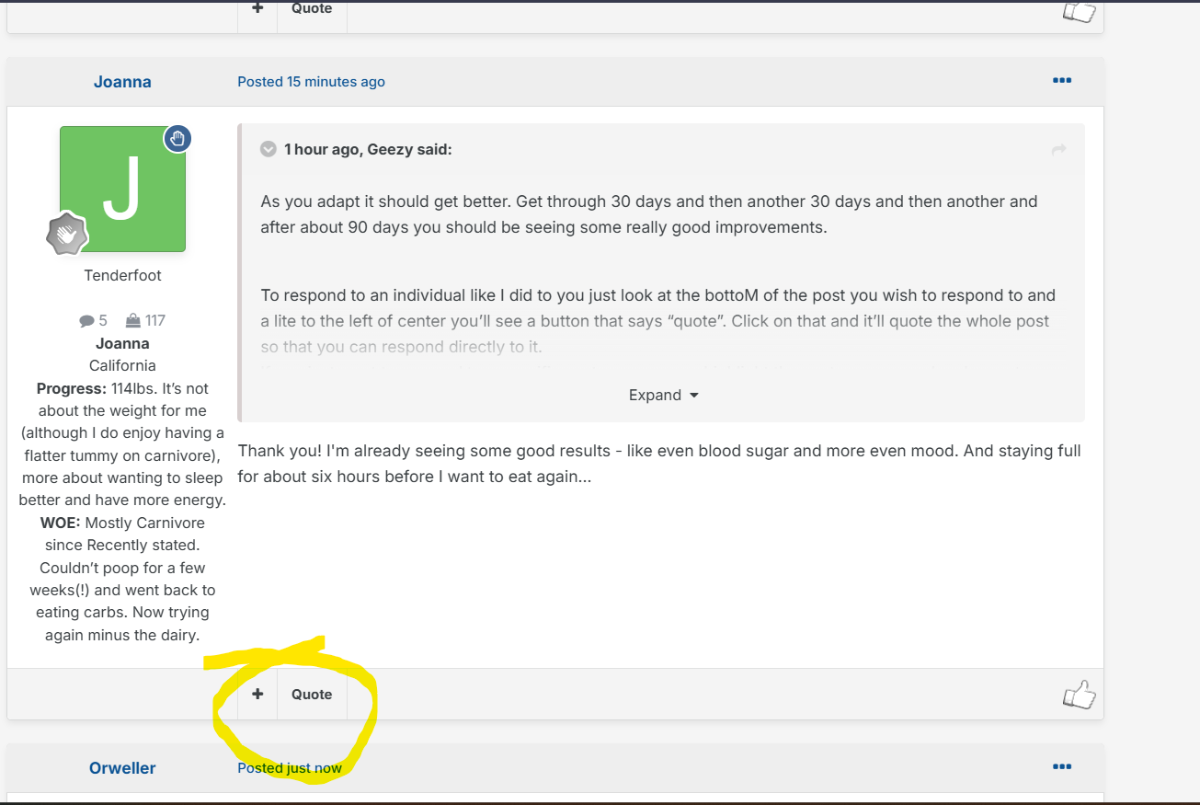Inside Robert F Kennedy Jr's controversial diet of red meat and fermented foodsPublished 16:13 2 Feb 2026 GMT The politician has even roped his wife into helping him achieve his diet goalsby Ella Scott Robert F Kennedy Jr, Secretary of Health and Human Services, has never shied away from discussing his controversial diet ideas with the public. Last month alone, the 72-year-old shared new US dietary guidelines, proclaiming that the ‘war on saturated fats’ was over, and presenting the idea that American’s should eat copious amounts of meat and cheese while keeping whole grain consumption to a minimum. Now, the environmental lawyer has defended the eyebrow-raising carnivore diet, claiming it has helped him lose a large amount of ‘visceral fat’. What is the carnivore diet?The carnivore plan is a restrictive diet usually consisting of meat, fish, eggs, seafood, and some more meat-derived products, such as cheese and butter, as per Harvard Health. Shannon Haynes, RD, a registered dietitian at Backus Hospital in Norwich, Connecticut, explained that the extreme ketogenic grub explicitly restricts carbohydrates, alleging that the body gets its energy by ‘burning fat instead’. “[It’s] supposed to speed up the breakdown of fat, improve blood sugar and decrease inflammation,” she told Hartford Healthcare. However, studies suggest that the carnivore diet can lead to nutritional deficiencies, increase inflammation risk due to the copious amount of red meat consumed, and put stress on the kidneys. Dr Mia Kazanjian, a board-certified radiologist in Connecticut, told Fox News Digital that anyone thinking of embarking on the idea should speak to a doctor first. "As a physician focused on cancer prevention, I recommend a Mediterranean diet, largely plant-based, with whole grains, fruits, vegetables and lean proteins, for optimal health and longevity," she added. RFK Jr defends the carnivore dietIn a new interview with USA Today’s Extremely Normal show, RFK Jr has admitted he is ‘on a carnivore diet’. “I only eat meat or fermented foods,” he said, adding that his daily meal plan ‘may not be right for other people’ and that he didn’t want to ‘make [himself] a role model for what people should do and shouldn't do’. As well as claiming to have lost fat by solely consuming meat, animal-based products, and fermented foods such as sauerkraut, the Republican alleged his diet had helped improve his cognitive ability. The politician celebrated his 72nd birthday last month with a plate of steak (X/@HHSGov) "The way I feel, my mental clarity, my word retrieval, I had noticeable improvements, and you can attribute some of that to placebo effect, but I lost 20 pounds in 20 days when I switched to this diet,” he claimed. However, he acknowledged that some of the so-called ‘enormous benefits’ could be put down to a placebo effect. Does the carnivore diet help you lose weight?Yasi Ansari, senior dietitian at UCLA Health Santa Monica, has spoken about RFK Jr’s weight-loss claims. “Technically, it’s possible to lose visceral fat on any diet in the short term," she told USA Today. "Anytime we restrict calories or significantly change the diet, we may see reductions in visceral fat in the short-term.” However, she added: “The long-term health benefits of consuming a diet rich in fibre from whole grains, nuts, seeds, beans, chickpeas and lentils − alongside lean proteins − far outweigh the short-term results that may be seen with a highly restrictive, fad diet.” RFK Jr's fermented foodsAs well as tucking into plates of meaty madness, the father-of-six apparently enlists the help of his wife, actress Cheryl Hines, to carry fermented foods around for him. Cheryl Hines reportedly carries around fermented foods for her husband (David Crotty/Getty Images) "I’ll have my little clutch, one of my good bags that I only take out every once in a while because I want to keep them nice, and he’ll hand me a bag of sauerkraut and say, 'Can you put this in your bag?'" the 60-year-old Curb Your Enthusiasm star said to The Cut. In January, the Washington DC native celebrated his 72nd birthday with a plate of steak, rather than a traditional sweet cake. “No cake, just steak. Happy Birthday @SecKennedy! We are so grateful for your leadership and determination to Make America Healthy Again,” wrote the official X account for the Department of Health and Human Services. ARTICLE SOURCE: https://www.foodbible.com/news/celebrity/rfk-jr-carnivore-diet-fermented-foods-explained-951518-20260202









The most-used herbicide on Earth just flunked a major safety test
Glyphosate, the active ingredient in Roundup, has been sprayed on food crops for decades. It’s used not only to kill weeds—but also to dry out wheat, oats, lentils, and chickpeas right before harvest, a practice called desiccation, which is illegal outside of the US.
This makes our breads and grains uniquely toxic, turning glyphosate into a debate almost as hot as seed oils.
New safety data this month has shocked the world, causing the EU to reevaluate it's already strict guidelines. Let's explore.
Even EU levels are unsafe
In June 2025, scientists from the Ramazzini Institute published the Global Glyphosate Study in Environmental Health. It was a two-year rat trial designed to mimic real-world exposure—specifically at the EU’s “safe” level of 0.5 mg/kg body weight per day.
What they found:
• Significant increases in leukemia and non-Hodgkin's lymphoma
• Tumors in the thyroid and liver
• Effects appeared even at the lowest dose tested—which mirrors the EU legal limit
How does the U.S. compare to the EU on glyphosate?
1. "Safe" Daily Limit:
• EU: 0.5 mg/kg body weight (EFSA)
• U.S.: 1.75 mg/kg body weight (EPA)
2. Food Testing:
• EU: Only ~1.7% of foods tested show glyphosate (EFSA Pesticide Residue Report)
• U.S.: No federal testing; independent labs show widespread contamination
3. Cereal Contamination:
• EU: Mostly non-detectable or under 100 ppb
• U.S.: Up to 2,837 ppb in Quaker Oatmeal Squares (EWG, 2018); up to 500 ppb in 2023 retest (EWG, 2023)
4. Bread Products:
• EU: Glyphosate rarely detected
• U.S.: Up to 1,150 ppb in whole wheat bread (Detox Project, 2020)
ppb = parts per billion. These levels are technically legal—but they raise serious questions in light of the Ramazzini findings.
Why oats and wheat get hit the hardest
It’s not just about what’s grown. It’s how it’s harvested.
In cooler or wetter regions, farmers spray glyphosate 3–5 days before harvest to dry the crop evenly. This isn’t for weeds—it’s for convenience. And it leaves the chemical sitting right on the grain.
High-risk foods:
• Conventional oats
• Wheat bread and crackers
• Lentils, chickpeas, and hummus
• Granola bars and "healthy" cereals
This practice, called pre-harvest desiccation, is banned or restricted in several countries. In the U.S., it’s business as usual.
Can you lower your glyphosate levels?
Yes. Fast.
The Organic for All Study tracked four families across four U.S. cities who switched to an all-organic diet.
After just six days, their urinary glyphosate levels dropped by 70 percent.
This wasn’t a detox protocol. It was just a grocery list.
What you can do right now
The best thing you can do is just eat meat. As a carnivore glyphosates are not an issue but for those who prefer more of a keto styled diet it’s best if you follow these guidelines.
• Buy organic—especially for oats, wheat, lentils, and chickpeas.
• Look for “glyphosate-free” certified products.
• Swap in safer carbs. Rice, corn, potatoes, and sweet potatoes are never desiccated.
• Support regenerative farms that avoid chemical harvest sprays. Look for “no spray” claims on-pack.
• Question “healthy” snacks. If it’s made with conventional oats or wheat, assume glyphosate unless proven otherwise.